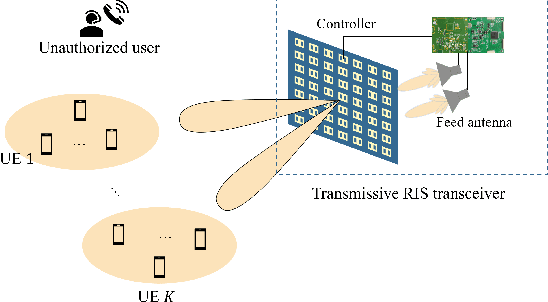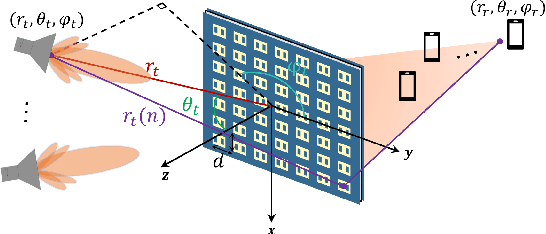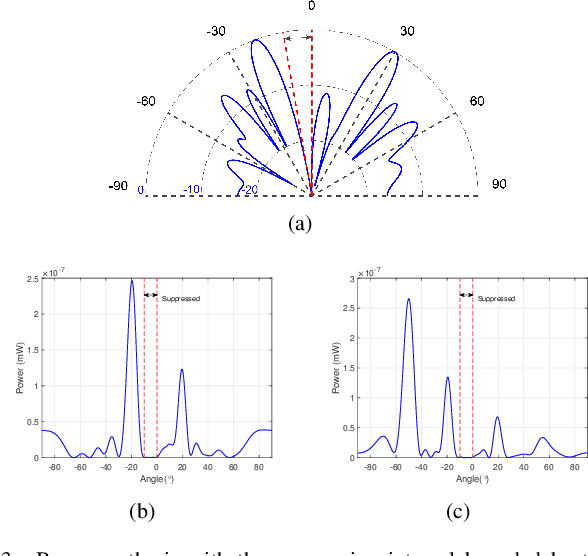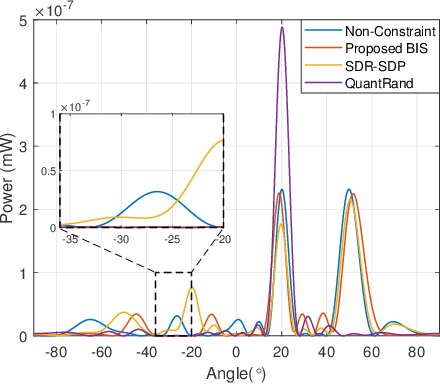Fair Beam Synthesis and Suppression via Transmissive Reconfigurable Intelligent Surfaces
Paper and Code
Nov 04, 2024



Existing phase optimization methods in reconfigurable intelligent surfaces (RISs) face significant challenges in achieving flexible beam synthesis, especially for directional beam suppression. This paper introduces a Max-min criterion incorporating non-linear constraints, utilizing optimization techniques to enable multi-beam enhancement and suppression via transmissive RISs. A realistic model grounded in geometrical optics is first presented to characterize the input/output behavior of transmissive RIS, effectively linking explicit beam-forming operations with practical implementation. Subsequently, a highly efficient bisection-based algorithm for constrained Max-min optimization involving quadratic forms is developed, utilizing an auxiliary variable and Moreau envelope to iteratively reach the optimal solution. This approach demonstrates excellent extensibility and is applicable to a wide range of constrained Max-min problems. Numerical simulations validate the proposed methods, confirming that the framework enables beam enhancement or suppression at designated spatial positions.
 Add to Chrome
Add to Chrome Add to Firefox
Add to Firefox Add to Edge
Add to Edge